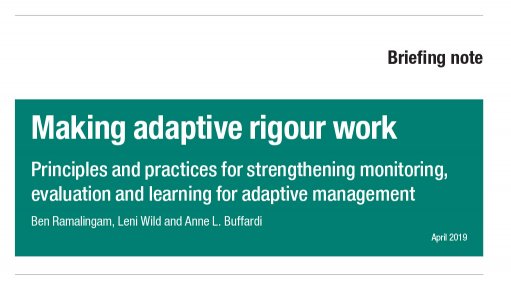
Core development and humanitarian challenges are complex, and require processes of testing, learning and iteration to find solutions – adaptive management offers one approach for this. Yet large bureaucracies and development organisations can have low tolerance for experimentation and learning, and adaptive management can be viewed as an excuse for ‘making things up as you go along’.
This briefing from the Global Learning for Adaptive Management (GLAM) innitiative argues that adaptive programmes can be accountable, rigorous and high quality in how they use evidence – but this requires rethinking some key assumptions about how they are practised. The paper sets out three key elements of an ‘adaptive rigour’ approach:
- Strengthening the quality of monitoring, evaluation and learning data and systems.
- Ensuring appropriate investment in monitoring, evaluation and learning across the programme cycle.
- Strengthening capacities and incentives to ensure the effective use of evidence and learning as part of decision-making, leading ultimately to improved effectiveness.
GLAM is a consortium led by the Overseas Development Institute (ODI) with the Institute for Development Studies (IDS), the International Rescue Committee, Oxfam, Oxford Policy Management, Social Impact and ThoughtWorks. Visit our project page for more information.
Report by the Overseas Development Institute